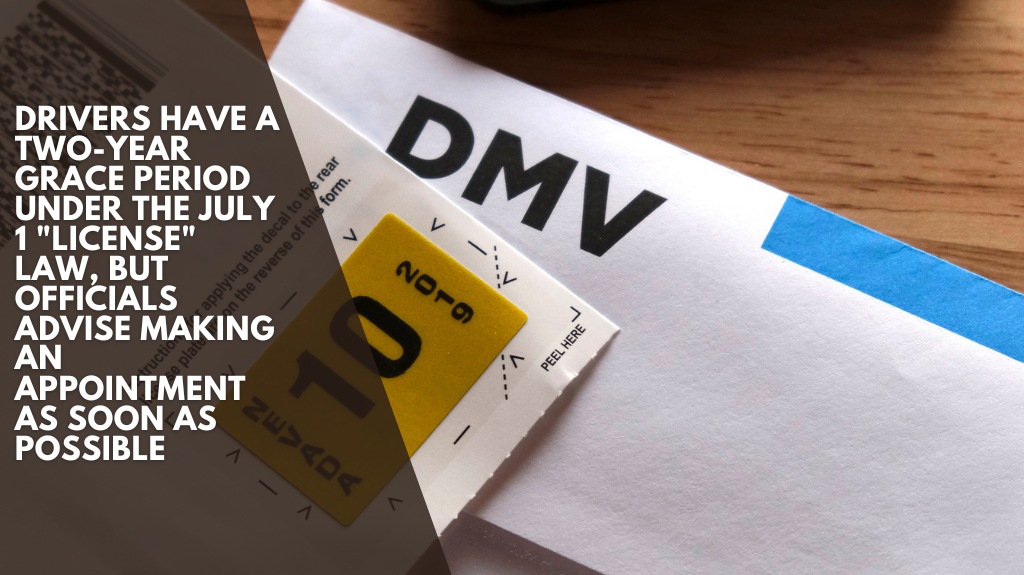A new law allows drivers with expired licenses to drive for the next two years.
The temporary act allows people more time to renew their licenses at the Department of Motor Vehicles.
North Carolina residents with Class C licenses that expire on or after July 1, 2025, are permitted to drive in the state after the expiration date.
The driving privileges remain in effect until December 21, 2027.
However, state officials urged anyone with an expired license to schedule an appointment to renew their licenses as soon as possible because the rule only applies to in-state driving privileges.
This means that expired licenses are not usable for identification purposes.
Drivers who do not have a valid ID may experience delays when attempting to fly, rent a car, fill a prescription, obtain a loan, or have documents notarized.
While the law prohibits drivers from receiving tickets for driving with an expired license in North Carolina, it is unlikely to protect them from citations in other states.
The law does not apply to commercial driver’s licenses, so truck drivers will still need to renew their licenses before they expire.
It also does not affect the privileges of drivers who have their licenses suspended, revoked, or canceled.
The temporary moratorium on the expiration of Class C driver’s licenses took effect on July 1, 2025.
Following the bill’s introduction in the North Carolina Senate, Governor Josh Stein signed it into law.
North Carolina Division of Motor Vehicles Commissioner Paul Tine stated that the measure was designed to assist DMVs that are overburdened with appointments.
“Thank you to the Legislature and Governor for this temporary measure to provide flexibility for North Carolina drivers while we work to address the increased demand for our services,” the commissioner of the NCDMV, Paul Tine, said.
NCDMV offers license and ID renewals online, making it easier for drivers who have expired licenses to renew them during the two-year grace period.
The state is also increasing the number of times that drivers can visit the DMV during the summer.
NCDMV statement
The North Carolina Division of Motor Vehicles issued the following statement about Senate Bill 391 being passed:
“Thank you to the Legislature and Governor for this temporary measure to provide flexibility for North Carolina drivers while we work to address the increased demand for our services,” the commissioner of the NCDMV, Paul Tine, said.
“Customers may present expired Class C licenses for in-state driving privileges if they expire on or after July 1, 2025.
“However, we advise our customers to renew their licenses to ensure they remain valid for identification purposes, including to fly, rent a car, get a bank loan, fill a prescription and have documents notarized.”
NEW WALK-IN HOURS
Drivers can now walk into 20 different DMV locations in the state without an appointment from 8 am to noon on Saturdays, state officials said in a press release.
The extra hours will be available until August 23.
Drivers can go to the DMV to renew their license, ID card, get duplicates, or change their address.
Road tests will also be available on Saturdays for drivers who have already passed the knowledge and written tests.
REAL IDs can also be obtained through walk-in services.
Drivers in North Carolina must provide multiple documents in order to obtain their new REAL ID.
Beginning May 7, 2025, the new IDs will be required to board all commercial flights.
Applying for a REAL ID
The process varies by state, but residents will need a few documents to apply for a REAL ID by the deadline.
Regardless of the state, the application process can begin online by scanning and uploading the required documents, basic information, and Social Security numbers.
Once the documents have been submitted and reviewed, an attendant will need to visit the DMV or your state’s department agency in person to verify them.
A thumbprint will then be recorded in the system, and the ID will be issued with a photo before being mailed.
The documents required are those that demonstrate:
Full legal name (previous driver’s license, passport, etc)
Date of birth (like a birth certificate, or an official copy of one)
Social Security number (Social Security card)
Two proofs of residence (like a utility bill or voter registration card)
Lawful status











